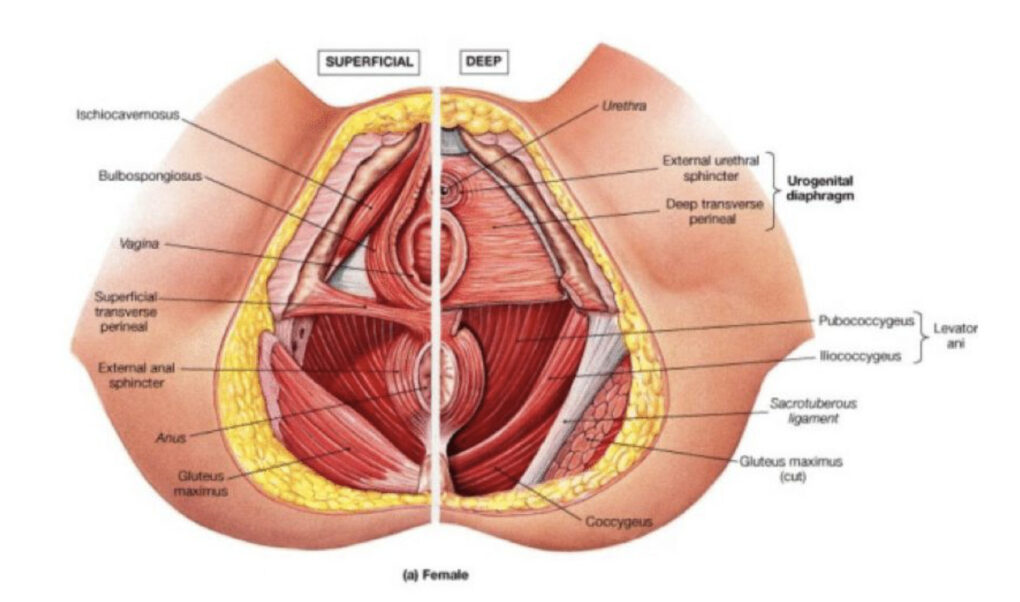What is the pelvic floor? The pelvic floor is a group of muscles found within and attached to the pelvis which worktogether as a unit to provide a range of functions. Some of these functions include:?Supporting the pelvic organs?Opening...
What is the pelvic floor?
The pelvic floor is a group of muscles found within and attached to the pelvis which work
together as a unit to provide a range of functions. Some of these functions include:
?Supporting the pelvic organs
?Opening and closing the urethral and anal sphincters
?Sexual function
?Help provide postural stability
?Work with the diaphragm while breathing to increase intra-abdominal pressure
?Helps with lymphatic drainage and blood flow

Reference: https://www.sydneypelvicclinic.com.au/vaginismus-genito-pelvic-pain-disorder-gppd/
What is Pelvic Floor Dysfunction
Pelvic floor dysfunction is a term used to describe a broad range of signs and symptoms caused
by the pelvic floor. It could be due the musculature being too tight, overactive, weak or the
inability to coordinate the these muscles. It could also be a combination of the above.
Signs of a dysfunction
?Constipation
?Incontinence/bladder leakage
?Urgency and frequency (needing to go to the toilet urgently or more frequently)
?Hesitancy with initial urination, stopping and starting urine stream, incomplete emptying
of bladder
?Feeling the need to strain while urinating
?Recurrent UTI or thrush
?Painful intercourse – during or after
?Genital pain
?Coccyx pain, Lower back and/or hip pain
?Reduced lymphatic function
What causes it?
We often associate pelvic floor dysfunction with pregnancy and postnatally, but it is something
that can occur at any age with or without a history of childbirth. Pregnancy and childbirth are
only two contributing factors of the dysfunction, the following are other factors which
may contribute to pelvic floor function::
?Physical trauma to the pelvic region
?Pelvic/abdominal surgery
?Stress levels
?Menstrual history
?Bowel function
?Hormones
?Nutrition and hydration
?Sleep
?Sport/activity
What should you do?
If you are experiencing any of the above symptoms or have any concerns in regards to your
pelvic floor function, speak to your primary healthcare provider. It is important to get assessed
so that a treatment and management plan can be developed specifically for you. The
management of your symptoms may vary depending on the cause and symptoms being
experienced. It could include a combination of strengthening exercises, relaxation exercises and
could potentially involve referrals to other practitioners.
Our osteopath Belicia Ralph at our Brisbane CBD has completed additional training in pelvic
health and would be happy to discuss any of your concerns.
For more information head to https://www.pelvicfloorfirst.org.au/ or
https://www.jeanhailes.org.au/
The post Pelvic Floor Dysfunction appeared first on Move Osteopathy.


